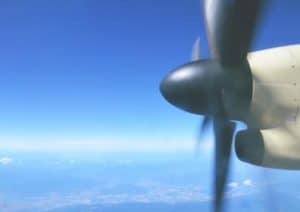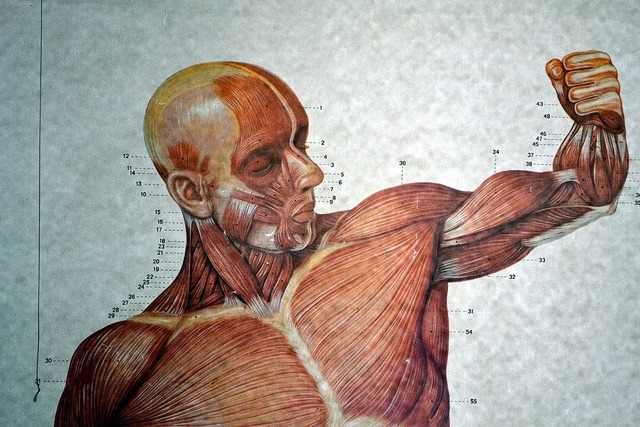We live in a paradox: change is the only constant yet human psyche resists change. Ability to adapt to new circumstances has always been a powerful driving force of human evolution. Yet human brain finds comfort in the sense of predictability, perceiving the unknown as a threat. We tend to cling to the known undesirable circumstances to the absurd degree, especially when our mode of operation isn’t optimal, e.g. running on chronic stress. In cross-cultural psychology, a society’s tolerance for uncertainty and ambiguity is referred to as uncertainty avoidance.

Stress caused by change can also be a motivating force, propelling us to tap into the hidden resources. However, excessive amount of cortisol that isn’t dissipated leads to the disturbance of the HPA axis (the hypothalamic – pituitary – adrenal) – a major neuroendocrine system regulating stress response and many body processes, including digestion, the immune system, mood and emotions, sexuality and energy storage.
Unmitigated chronic stress may eventually result in the burnout. Herbert J Freudenberger, psychologist who coined the term “burnout” defines it as follows: “A state of physical, emotional and mental exhaustion caused by long-term involvement in emotionally demanding situations.”
 Biologically speaking we are cavemen with laptops, cell phones and deadlines, facing overly fast pace of life without the tools of self-regulation. We are almost expected to perform against our biology.
Biologically speaking we are cavemen with laptops, cell phones and deadlines, facing overly fast pace of life without the tools of self-regulation. We are almost expected to perform against our biology.
“Burnout is considered a process, not an event. A build-up of symptoms slowly takes us out of our prefrontal cortex, which is the executive thinking center, our natural resources for coping with pressure and strain”. (Neurosculpting® Journal Vol. 1, Jan 2016)

One of the most powerful skills we can master is mindfulness. Neuroscientists had measured that our default network mode (DMN) is the opposite the state of flow. It is the state of wandering mind, which is opposite of present. As we start practising the art of presence we start changing our biology.
“Brain neurochemistry changes when we start minding our thinking process. Besides, it is now widely accepted and empirically proven, that our brains are elastic and regenerative. We have the ability to generate new brain cells — a process known as neurogenesis.” (How to grow your gray matter, Seattle Yoga News 2016).
Understanding how human brain became so easily hijacked by alarm, is the first step toward gaining more control over that ancient circuitry. Then, by bringing mindful awareness to how the brain reacts to feeling threatened we can develop sense of inner strength. A mind that sees real threats more clearly, acts more effectively in dealing with them. Rick Hanson uses term “negativity bias”, offering findings in neuroscience to explain this phenomena:
“Negative stimuli produce more neural activity than do equally intense (e.g., loud, bright) positive ones. They are also perceived more easily and quickly. For example, people in studies can identify angry faces faster than happy ones; even if they are shown these images so quickly (just a tenth of a second , or so) that they cannot have any conscious recognition of them, the ancient fight-or-flight limbic system of the brain will still get activated by the angry faces. The alarm bell of your brain — the amygdala — uses about two-thirds of its neurons to look for bad news: it’s primed to go negative. Once it sounds the alarm, negative events and experiences get quickly stored in memory — in contrast to positive events and experiences, which usually need to be held in awareness for a dozen or more seconds to transfer from short-term memory buffers to long-term storage.”
Neuroplasticity training aims to overcome negativity bias and resistance to change. After all, “your brain is the most important organ in your body, and what happens in it determines what you think and feel, say and do…” (Hardwiring Happiness, Rick Hanson)
 Vija Rogozina
Vija Rogozina
Vija is an international educator with meditation experience of over 20 years. Born in Latvia, Vija has lived and worked in the Netherlands, UK, Thailand, India, Colorado and currently lives in Seattle, WA. She speaks four languages fluently and one day hopes to master one more. She is a certified Neurosculpting® Facilitator & Tier 2 Fellow, and has a B.A. in Social Work and a B.A. in Communication. She studied at the University of Leeds, UK, School of Social Work in Latvia, University of Utrecht in the Netherlands and the Academy of Film and TV in Delhi. Vija has practiced meditation in varying forms since her late teens and undergone Buddhist study with Sakyong Mipham at the Shambhala Buddhist Center. She is also a 200 hour certified Kids Yoga instructor, a visual artist and a published author. Vija came to her first Neurosculpting® class with Lisa Wimberger in 2011 when she was faced with unaddressed PTSD and ADD patterns. Neurosculpting® has helped Vija to create a more integrated path in her professional and personal life. Always a seeker, Vija has been pursuing knowledge of human condition and self-discovery, especially after having a spontaneous out-of-body experience and multiple dream visions. A single parent and wellness entrepreneur, she walks her talk and applies self-awareness skills daily. She is in constant awe of unlimited human potential and is honored to be able to share powerful Neurosculpting® tools in the Pacific Northwest and globally. She works with private clients and groups, improving her clients’ journey through life. Email: moc.liamgobfsctd-71aece@anizogorajiv, Website: www.vijarogozina.com

